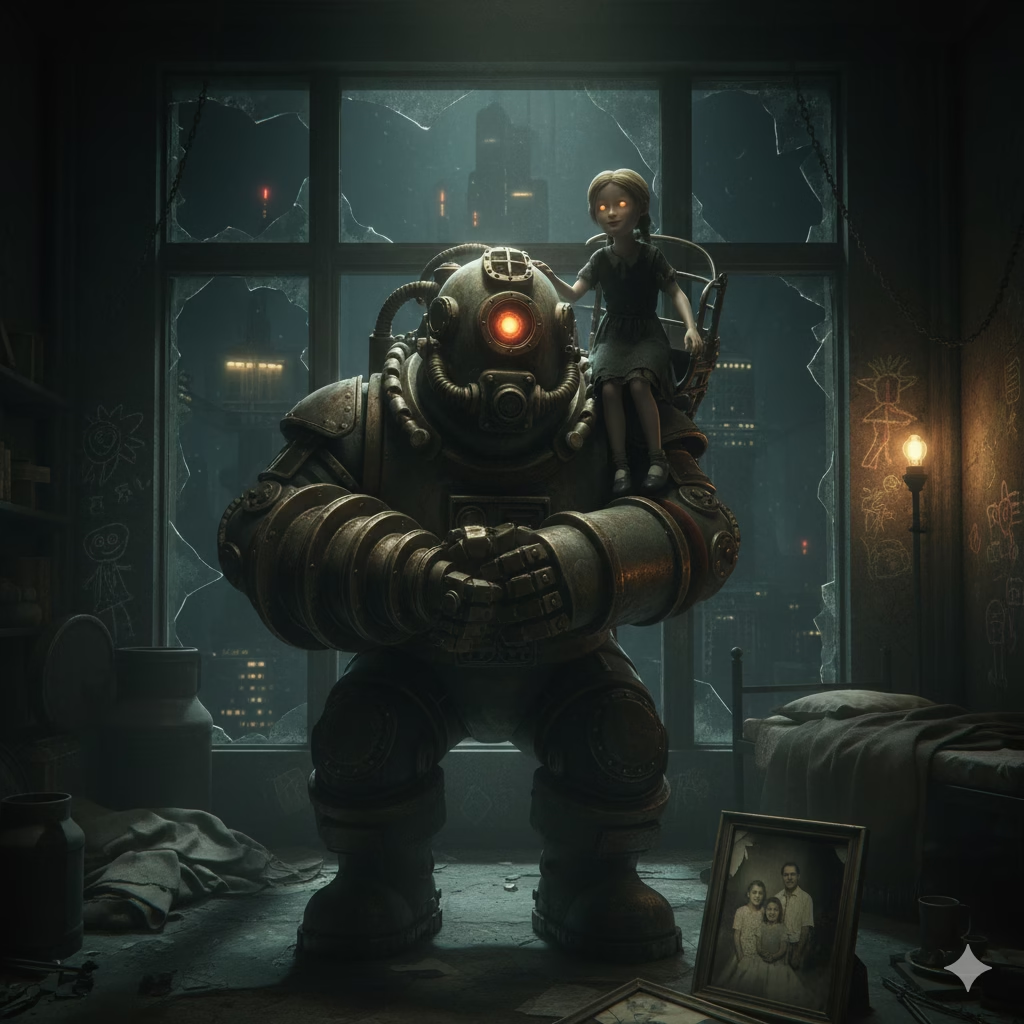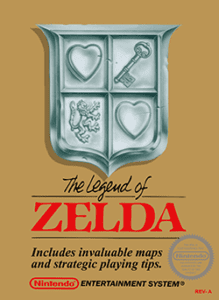The Alpha and the Lamb: A BioShock “What If” That Changes Everything
By [devilmanz1024]
In the drowned, decaying city of Rapture, humanity became a commodity. And no commodity was more tragic than the Little Sisters—genetically altered children programmed to extract the coveted bio-resource, ADAM. Guarding them were the Big Daddies, hulking, diving-suit-clad behemoths who were less men and more protective, programmed machines.
But what if the very first Big Daddy bond wasn’t a product of perfect, cold scientific programming? What if a glitch in the genesis created a genuine, loving father-daughter relationship, forcing the pair to carve out a new, terrifying existence in a city built on greed?
This is the story of the Alpha and the Lamb—Rapture’s first, most terrifying family.
The Glitch in Suchong’s Machine
Our “What If” begins in the early days of ADAM harvesting. Dr. Yi Suchong, the mad scientist behind the Splicer process, is working to perfect the Alpha Series Big Daddy—the prototype, the muscle. The theory is simple: imprint a primal, protective instinct onto a Splicer’s brain, then psychologically condition the Little Sister to view this behemoth as her sole, absolute guardian.
But with the first prototype—let’s call him “Alpha-01”—the conditioning is rushed. The Little Sister assigned to him, perhaps a young girl named Elara, is not yet fully tuned by the conditioning. When the psychic bond snaps into place, the Splicer’s programmed instinct to protect collides with a deep, emergent paternal instinct. Alpha-01 doesn’t just recognize a ward; he recognizes a daughter. Elara, in turn, sees a father, terrifying though he may be.
For the first time, a Big Daddy feels love. And in Rapture, love is the most dangerous anomaly of all.
Rapture’s First Fugitives
This genuine bond is a catastrophe for the architects of Rapture.
To Dr. Tenenbaum, who still holds a shred of humanity, the pair represents a heartbreaking miracle—proof that true affection can survive her own horrific experiments.
To Suchong and Andrew Ryan, it’s a fatal scientific error that must be eliminated. A Big Daddy that acts out of free will and love is uncontrollable. They can’t risk this “glitch” spreading.
Suddenly, Alpha-01 and Elara are not protectors; they are fugitives. Ryan’s security forces and Fontaine’s increasingly desperate Splicers are sent to capture them—not to harvest ADAM, but to dissect and destroy the bond itself.
They become a ghost story. Alpha-01, using his strength and his fatherly ingenuity, establishes a sanctuary in the decommissioned sub-basements and pressure vaults of the city. He doesn’t harvest; he hides, using his drill not for combat, but to fortify their home.
The Purest Corruption: The Vigilantes
This is where the story turns truly grim. The loving bond saves them from being Splicers, but it doesn’t save them from Rapture. The city is still crumbling, and to maintain the suit’s life support and Elara’s health, Alpha-01 needs ADAM. He needs the genetic material she can consume and process.
To sustain their family, they evolve a terrifying moral code. They become Rapture’s unofficial clean-up crew.
They don’t attack the innocent or the frightened. Instead, the father-daughter pair ruthlessly hunts the worst of the Splicers—the violent, ADAM-riddled maniacs who have lost all semblance of self. They patrol the dark halls, not seeking a fight, but seeking justice for their needs. They stalk the worst abusers of ADAM, eliminate them, and Elara harvests the necessary material.
“Daddy only fights the bad men,” is the mantra of their existence. Their survival is founded on a terrifying act of self-justified, necessary murder.
The Legacy of the Alpha
The Alpha-01 and Elara don’t save Rapture; they become a permanent, horrifying feature of its decline. They are the boogeymen of the Splicer underworld—the Big Daddy who is too fast, too smart, and too ruthless because he’s fighting for something more than programming: his daughter.
This “What If” proves that even the purest human instinct—parental devotion—can be utterly corrupted when forced to thrive in a world as morally bankrupt as Rapture. The bond is genuine, beautiful even, but the actions required to sustain that bond are monstrous. They are a loving family of two, built on the corpses of their enemies.
It forces us to ask: In a place like Rapture, can love ever be pure, or is it just another powerful, terrifying mechanism of survival?






Post Comment